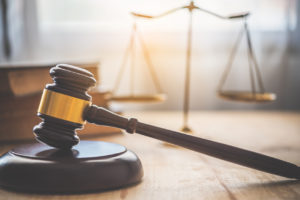
Choosing to speak to police officers after they arrest you is usually not in your best interest unless you have a defense lawyer at your side. After an arrest, you have the right to refuse to answer questions until you have an attorney present.
If you choose to speak with the police, they can use anything and everything you say during this interview as evidence against you in a criminal trial. If law enforcement arrested you, you may be facing serious charges. Your attorney can help you determine whether the information you provide will incriminate you.
Why Is It Dangerous to Speak to the Police Without Your Attorney Being Present?
During your interview with police officers, they may use techniques that could get you to admit to certain actions. This can lead to you revealing information that you do not want to tell the police.
Even if you did nothing wrong, certain information you reveal can raise suspicions. Our legal team can help you determine what information is safe to share with law enforcement.
Police May Suggest You Will Have a Certain Outcome
As you are speaking with a police officer after your arrest, the officer may tell you that if you just share some information, you could be eligible for a diversion program or for a reduced sentence. It is true that you could be eligible for these things.
However, no police officer can guarantee you a specific outcome. Only the prosecutor can discuss these matters with you and your attorney, and this occurs only after the prosecutor officially files charges against you. When our Texas defense lawyer is with you during the interview, we will help you determine if the officer’s suggestion applies to your situation.
Police Can Make Misleading Statements
A common technique some police officers use after an arrest is to tell you that this is your only chance to come clean about what happened. Or they may tell you that asking for an attorney means you will lose your chance at receiving a deal.
Again, these types of statements are not completely true. Police can make their investigations of certain crimes go significantly faster if they can convince you to admit to your role or blame someone else. You do not have to share this information. They may find the information through their investigation later, but you do not have to give it to them.
You have the right not to incriminate yourself, as spelled out in the Fifth Amendment to the U.S. Constitution. By having our team present with you when police officers are questioning you after an arrest, we can help you to protect your rights.
Questions You Must Answer After an Arrest
Although you do not have to speak to law enforcement officers after an arrest when they ask you questions about a specific crime, you do have to share some information with police officers, according to the American Civil Liberties Union (ACLU).

Name and Address
In Texas, according to Penal Code Chapter 38.02, when the police arrest you, you must provide the officers with your name, residence address, and date of birth.
Failure to provide this information or giving police officers false information could lead to criminal charges against you.

Driver’s License and Registration
If police officers pull you over while you are driving in Texas, you must provide the officers with your driver’s license, vehicle registration, and proof of insurance certificate if they ask.
However, you do not have to answer any of the officers’ questions.
Requesting a Lawyer After an Arrest in Texas
You have the right to request an attorney after the police arrest you and attempt to interrogate you. After an arrest, you may have to go through a booking procedure and spend time in a holding cell before you can request an attorney.
Even if you choose to begin answering questions initially, you can stop answering them at any point and request an attorney.
Once you make this request, police officers must stop asking you questions. You may have to return to a holding cell for a bit before you can reach out and contact your defense lawyer, but the police must stop interviewing you and wait until your attorney is present.
Consider Hiring the Law Offices of Randall B. Isenberg to Represent You
When going through a formal interview after an arrest, it is easy to misspeak or to reveal information that the police can use against you during a criminal case. You should not speak to a law enforcement officer after an arrest without your attorney present.
When you hire our Texas criminal defense lawyers, we are always ready to defend your rights in criminal cases. We will advise you on when and how you should speak to the police.
Call the Law Offices of Randall B. Isenberg today at (214) 696-9253 for a consultation about your case.










